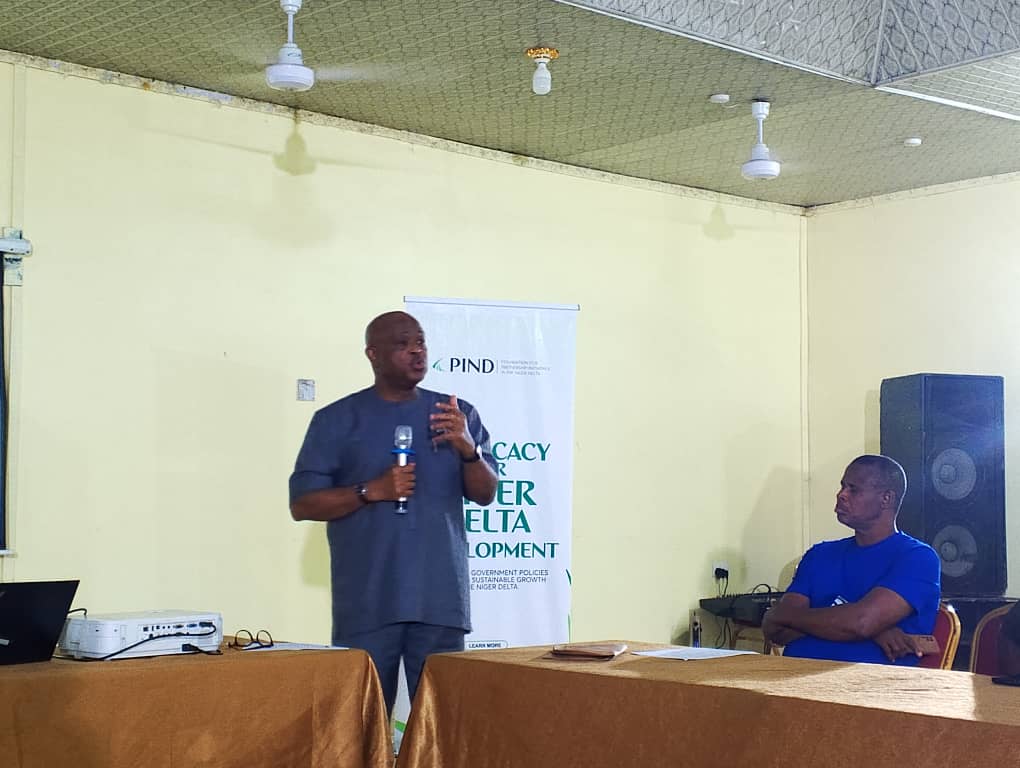Stakeholders from oil and gas-producing host communities in Bayelsa State have called for amendments to the Petroleum Industry Act (PIA), including an increase in the operational expenditure (OPEX) fund to at least 5 percent and the inclusion of 35 percent affirmative action for women and persons with disabilities (PWDs).
They also recommended the removal of the clause that holds communities responsible for the security of oil infrastructure within their territories.
The recommendations were made recently in Yenagoa during a one-day stakeholder consultative meeting on Host Community Development Trusts (HCDTs), organized by the Foundation for Partnership Initiatives in the Niger Delta (PIND). The meeting aimed to strengthen local support for the implementation of the PIA and promote inclusive community development models across Bayelsa State.
In a communique issued at the end of the meeting, the stakeholders emphasized the need for expanded training and consultation at the community level, noting that many HCDT members remain unaware of their roles as outlined in the PIA. They stressed the importance of continuous sensitization for community leaders to enable effective engagement with settlors in the selection of HCDT members.
The communique noted that proper training in participatory community needs assessment should be conducted for HCDT board members, and periodic structured training should be organized to improve management effectiveness in line with the Companies and Allied Matters Act (CAMA). The stakeholders advocated that training and capacity-building initiatives be included in Community Development Plans (CDPs) and funded from the 75 percent project allocation, adding that such initiatives should be treated as priority projects.
They encouraged communities to report any challenges concerning settlors and HCDTs to the Nigeria Upstream Petroleum Regulatory Commission (NUPRC), especially in cases where proper community needs assessments were not conducted. Participants expressed a strong commitment to the successful implementation of the PIA in Bayelsa State and urged settlors and the NUPRC to consistently adopt inclusive engagement methods such as town hall meetings and Alternative Dispute Resolution (ADR) mechanisms to foster mutual trust and ensure community voices are reflected in decision-making.
The stakeholders further stressed the need to involve informal community leadership structures—including women leaders, youth, PWDs, and other influential individuals—in the implementation process of the PIA. They called for the development of a strategic roadmap to institutionalize the role of such informal leaders in community engagement processes.
To enhance regulatory oversight, the stakeholders urged the NUPRC to conduct regular field monitoring to assess the performance of HCDTs and identify challenges. They also recommended that the NUPRC embark on sensitization campaigns and capacity-building sessions for community leaders and HCDTs to improve understanding of engagement protocols and documentation processes for seamless regulatory approvals.
They emphasized that stakeholders’ engagement, including community consultations and sensitization drives, should be carried out periodically to review decisions and agreements regarding the selection of Boards of Trustees (BOTs), Management Committees (MCs), and Advisory Committees (ACs), as well as the adoption of development models. Monitoring and evaluation of the PIA’s implementation should begin from the inception of each HCDT and be led by HCDT officials in collaboration with independent civil society organizations to ensure compliance with PIA provisions, transparency, and accountability in budgeting and project execution, gender inclusion, community participation, and local content development.
Each HCDT, the communique stated, should develop a monitoring and evaluation framework to track project progress in line with PIA provisions. They also encouraged HCDTs to leverage NUPRC’s ADR mechanisms to resolve disputes and to foster cordial relationships with settlors to access additional Corporate Social Responsibility (CSR) benefits for their communities.
The group reaffirmed its position that the Petroleum Industry Act should be amended to increase operational expenditure allowances, mandate affirmative action quotas, and relieve communities of the responsibility of securing oil infrastructure. They further called for regulatory alignment and advocacy to resolve inconsistencies between the provisions of the PIA, HCDT constitutions, and NUPRC regulations.
To ensure successful implementation, the stakeholders emphasized the importance of strong monitoring, evaluation, and accountability frameworks from the onset of each HCDT, supported by independent civil society actors. They noted that such measures would promote transparency, respect for local empowerment, and the spirit of shared values under the PIA, while also strengthening partnerships between settlors and communities across Bayelsa State.
Earlier in the meeting, participants raised concerns that some HCDTs had failed to conduct new community needs assessments and had instead adopted outdated Global Memoranda of Understanding (GMoUs) and Community Development Plans (CDPs) prepared over six years ago, with minimal review. However, some communities in Southern Ijaw and Ekeremor Local Government Areas were acknowledged for conducting participatory needs assessments in their town halls in collaboration with their settlors.
Participants also expressed concern that since 2022, only a few settlors in Bayelsa have visited their host communities to carry out needs assessments. They stressed that the effective implementation of the PIA relies on sustained stakeholder engagement and urged that such engagements continue until the Act’s objectives are fully realized.















